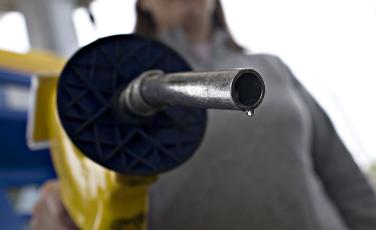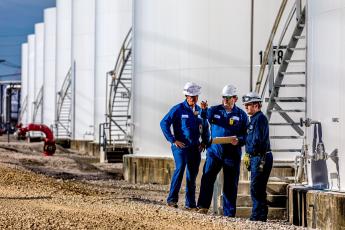Statement from the American Fuel and Petrochemical Manufacturers (AFPM) on H.R. 1
H.R. 1 is an investment in U.S. energy security. Fuel and petrochemical manufacturers, and the energy infrastructure companies that make it possible to get our feedstocks and products from point A to point B, welcome the additional clarity and regulatory certainty this legislation will provide.
Newsom windfall tax = CA’s latest self-inflicted policy wound
AFPM issued the following statement on the passage of California legislation that will empower the state’s unelected bureaucracy to impose an effective windfall tax and massive regulatory burden on the state’s remaining refineries. "...Add this legislative cocktail to the list of self-inflicted policy wounds for a state already bleeding people."
AFPM members partner with first responders to improve community safety
Nothing is more important to the fuel and petrochemical industries than the safety of our employees, communities and the environment. U.S. refiners and petrochemical manufacturers invest extensively to help provide equipment, funding and training for emergency response units.
AFPM applauds introduction of Preserving Choice in Vehicle Purchases Act
Every American should be able to choose the type of car or truck they want to drive. Restricting consumer choice by eliminating competition and banning entire vehicle power trains is the wrong path to achieving cleaner transportation or supporting U.S. energy security.
An electrified RFS betrays Congress’s vision and U.S. biofuels
When Congress created the Renewable Fuel Standard, the intent was clear. The RFS was supposed to build a market for American-grown biofuels and support domestic energy security. Today, EPA wants to deviate wildly from this course. Instead of maintaining the RFS as a program for liquid transportation biofuels, EPA’s RFS proposal for 2023 to 2025 would begin transforming the RFS into yet another huge government subsidy for electric vehicles.
**Updated**CA Seeks EPA Authorization to Ban Gas and Diesel Vehicle Sales. Policy Could Spread to Other States Too.
The California Air Resources Board (CARB) adopted its Advanced Clean Cars II (ACCII) regulation. ACCII requires 35% of light-duty vehicle sales to qualify as “zero emission” by 2026 and 100% by 2035. Essentially, this amounts to a ban on new sales of traditional gasoline and diesel-powered cars and trucks. To implement the policy, California will need a Clean Air Act waiver from the Environmental Protection Agency (EPA). If EPA grants the waiver, millions of Americans—including many outside of California—could lose the option to buy the car or truck THEY want.
U.S. refinery utilization is the quiet hero in a tight refined product market
In a tight refined product market it has been U.S. refiners that have stepped up. Our industry ran full-out for most of 2022 making sure American consumers, our domestic economic centers and our allies had enough gasoline, diesel and jet fuel to keep everyone moving. Our refining sector leads the world in liquid fuel production and is effectively doing more than any other to bring better balance to the global market.
AFPM statement on EPA’s decision to grant Midwest petitions to eliminate RVP waiver for summertime gasoline
AFPM Senior Director of Fuels & Vehicle Policy Patrick Kelly today issued the following statement on EPA's announcement that it will grant requests from eight Midwestern states to remove the 1.0 psi RVP waiver from summertime gasoline effective next year. If implemented, these states will no longer be able to sell the current blend of summertime gasoline and a new grade of gasoline will need to be manufactured and supplied to the region.
AFPM’s Chet Thompson on the Labor & Energy Show
AFPM President & CEO Chet Thompson was a guest on a recent broadcast of “The Labor & Energy Show”, which airs up and down the Mid-Atlantic








